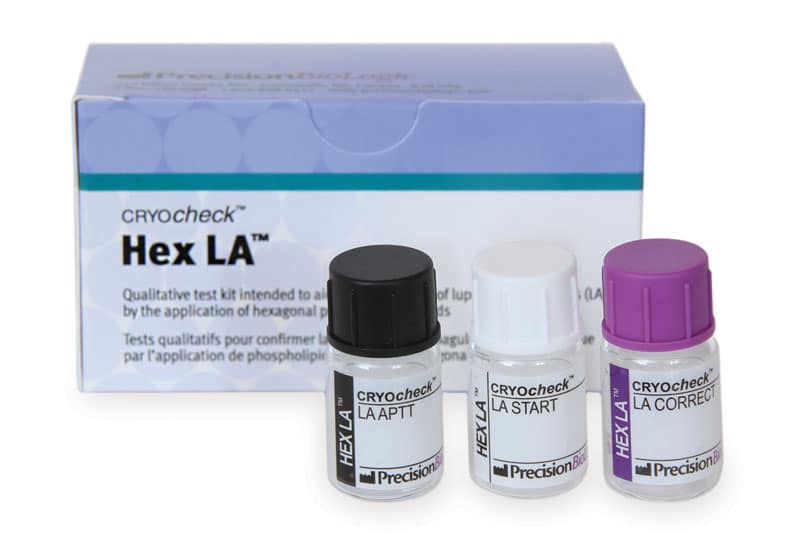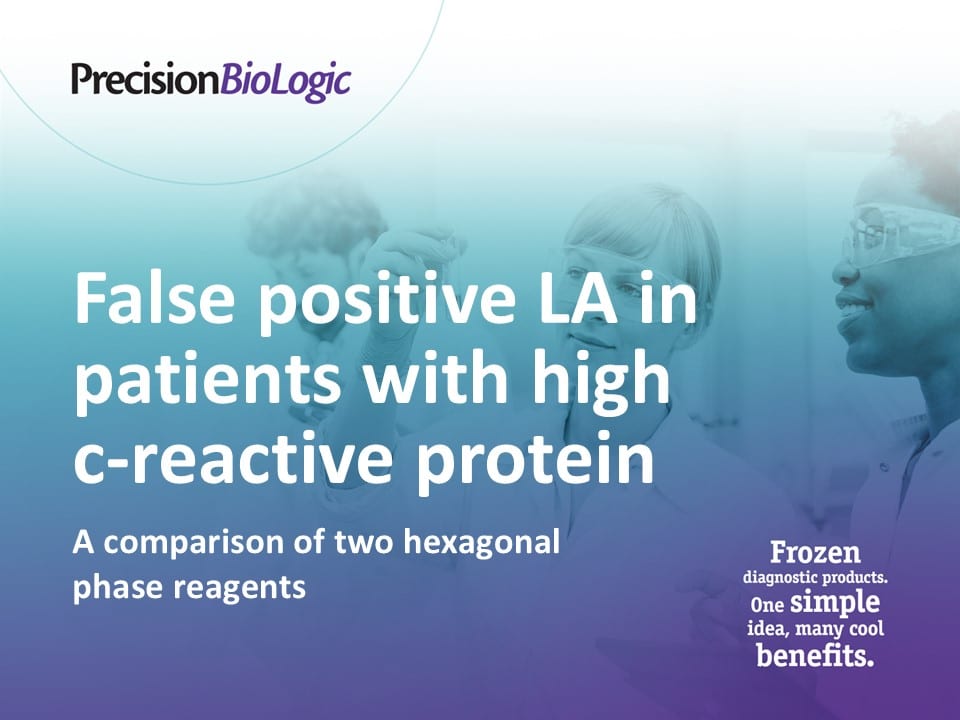Hex LA
Diagnostic KitsCRYOcheck™ Hex LA™ is a qualitative test kit to aid in the detection of lupus anticoagulant (LA) by the application of hexagonal phase phospholipids.
CRYOcheck Hex LA is an integrated (screen and confirm) silica-based APTT assay. The presence of LA in a sample is confirmed by the correction of APTT clot time upon addition of a reaction mixture containing hexagonal phase phospholipid. By comparing clot times of patient plasma both in the presence and absence of hexagonal phase phospholipid, the presence of LA can be confirmed. CRYOcheck Hex LA’s LA Start and LA Correct reagents contain pooled normal plasma and a heparin neutralizer. This ensures that prolongation of clot times due to factor deficiencies are corrected and that the assay is unaffected by heparin levels up to 2 IU/mL.
- Convenient frozen format ready to use within minutes, no reconstitution errors
- Intended for use on automated coagulation analyzers
- Simple format: minimal vials means less preparation time and faster results
- Unaffected by unfractionated heparin (UFH) and low molecular weight heparin (LMWH) up to 2 IU/mL
- Dabigatran, rivaroxaban, and fondaparinux do not interfere with the interpretation of CRYOcheck Hex LA results nor does C-reactive protein*
- Compact, color-coded packaging for easy storage and identification in freezers
- 8-hour on-board stability
* may increase delta correction of LA positive samples

Specifications
Storage and Shelf Life
Storing
below -70°C
Type
Frozen
Expiration
3 years after manufacturing date
Available Formats
| Cat # | Format |
|---|---|
| HEXLA |
2 x 1.5 mL (LA Start) 2 x 1.5 mL (LA Correct) 2 x 3.0 mL (LA APTT) |
| HEXLA-7 |
2 x 1.5 mL (LA Start) 2 x 1.5 mL (LA Correct) 3 x 3.0 mL (LA APTT) |
| HEXLA-M |
2 x 1.0 mL (LA Start) 2 x 1.0 mL (LA Correct) 2 x 2.0 mL (LA APTT) |
Study Overview
The effect of high c-reactive protein levels on lupus anticoagulant testingTune in as Sacha Uljon, MD, PhD and Ryan Mize, DCLS, MHA, Mass General Brigham Special Coagulation Integrated Laboratory Service, discuss their recent study looking at the effect of high c-reactive protein levels on lupus anticoagulant testing.


